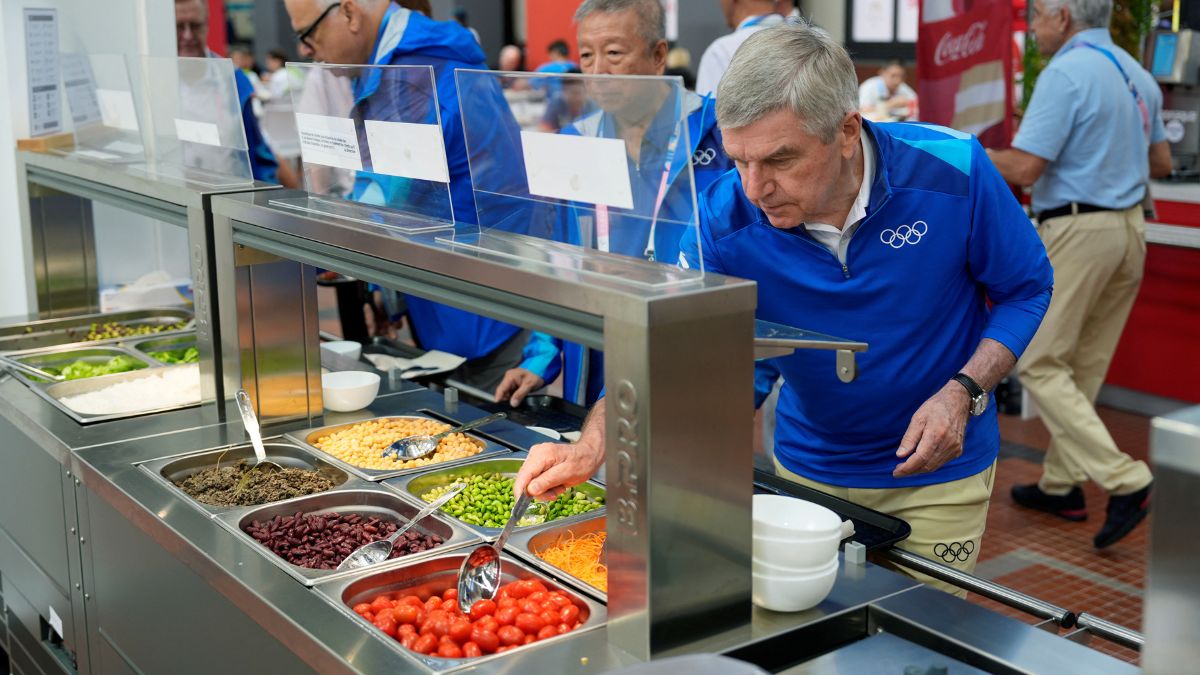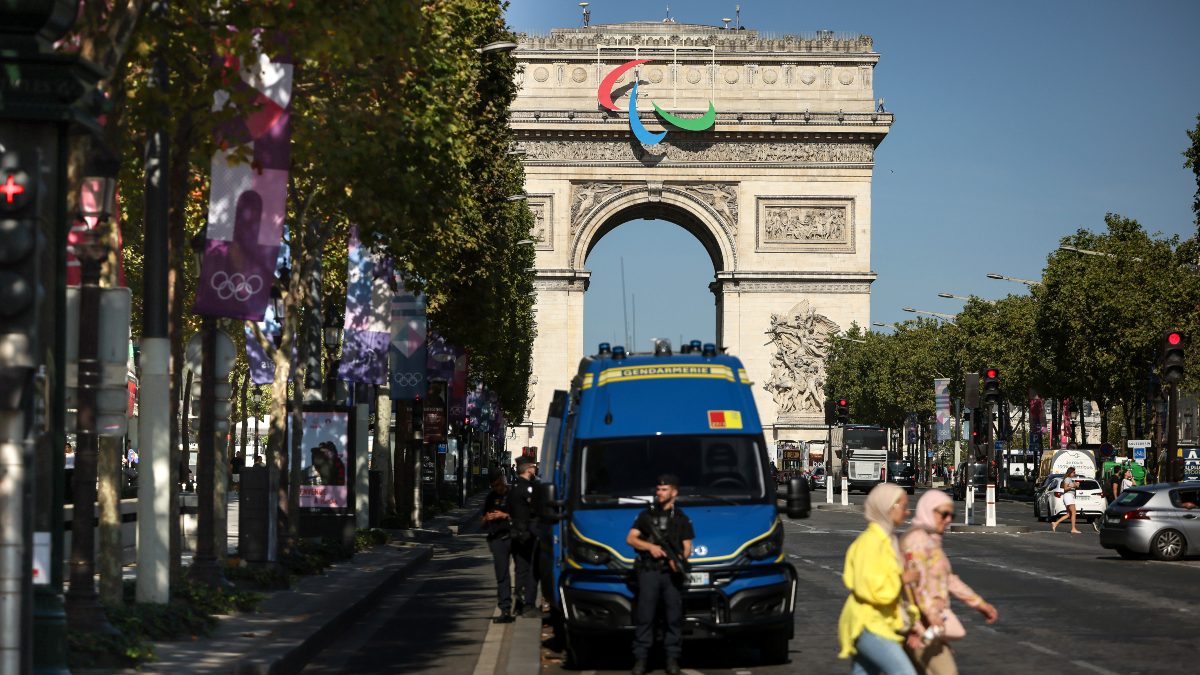Olympic athletes in Paris have voiced concerns about food shortages, particularly eggs, leading to rationing. Sodexo Live! and Carrefour have pledged to increase supplies to meet high demands. Despite efforts from Michelin-starred chefs and a focus on sustainability, complaints persist about the quality and quantity of meals. Organisers aim to serve 13 million meals during the Games, addressing the needs of 15,000 athletes and support staff read more
)
International Olympic Committee (IOC) President Thomas Bach tours the athletes village ahead of the Paris 2024 Olympics, July 22, 2024. File Image/Reuters
As the Paris 2024 Olympics kick off, athletes have raised concerns about food shortages, particularly the availability of eggs, in the Olympic Village. Challenges in catering to the dietary needs of over 15,000 athletes from 208 countries, as well as support teams, officials, and volunteers is a humongous task and these shortages have been reported just a short time before the much-awaited opening ceremony.
Reports from multiple sources, including French newspaper L’Équipe, indicate that athletes have encountered a shortage of food, specifically eggs and grilled meats. On Wednesday morning, the situation escalated when breakfast eggs were rationed due to high demand.
A spokesperson for Sodexo Live!, the official catering partner of the Olympic Village, acknowledged the issue, stating, “volumes will be increased to satisfy the needs of the athletes.”
The Carrefour group, responsible for supplying fresh products to the Village, confirmed the need to revise quantities upwards. “It was requested to revise upwards the quantities initially planned, which the group will be able to satisfy,” said a Carrefour spokesperson.
This adjustment is crucial as the Olympic Village is set to serve approximately 13 million meals during the Olympic and Paralympic Games.
Team from UK hires an additional chef
The main restaurant in the Olympic Village, capable of accommodating 3,300 diners, has received input from Michelin-starred chefs like Amandine Chaignot, Alexandre Mazzia, and Akrame Benallal. Despite these efforts, complaints have emerged regarding both the quality and quantity of the food.
Team GB, in particular, has voiced concerns about the insufficient supply and quality of the food, citing instances of raw meat being served, reported The Guardian. Andy Anson, the British Olympic Association chief executive, described the food as “not adequate” and called for “a dramatic improvement.”
According to The Guardian, to address these issues, Team GB has hired an additional chef and set up a catering college in Clichy to prepare meals for their athletes. “There are not enough of certain foods: eggs, chicken, certain carbohydrates,” Anson explained. Athletes have resorted to picking up packed meals from Team GB’s base in the city to ensure they receive adequate nutrition.
What has changed food-wise at the Paris Olympics?
The Paris Olympics have implemented a strict quality charter for food, developed over four years with the goal of halving the carbon footprint of meals compared to the London 2012 Games. A quarter of all ingredients are sourced within a 250km radius of Paris, and 20 per cent are certified organic.
All meat, milk, and eggs served come from France, and a third of the food is plant-based. Nearly two-thirds of the 500 dishes offered are vegetarian, featuring items like beefless bourguignon and “not-dogs” made with onions and pickled cabbage with honey-mustard sauce.
In an effort to promote sustainability, the Village has installed 200 water, juice, and soda fountains, providing reusable cups and crockery to minimise waste. Organisers have also pledged to redistribute leftovers to those in need and repurpose used coffee grounds for fertilization.
Athletes need their nutrition
Feeding 15,000 international athletes, plus support staff, officials, and volunteers, is a monumental task. The Olympic kitchen operates 24 hours a day, offering 40 entrees along with a salad bar, grill, cheese cart, boulangerie, hot bar, dessert bar, and fruit stand. Once fully operational, it will serve around 40,000 meals daily, totaling close to 13 million meals throughout the Games.
Despite meticulous planning, the high demand has outpaced the supply chain’s capacity. “The kitchen is the heart of the home, and it’s that way at the Olympics,” US skier Gus Kenworthy told NBC, highlighting the importance of adequate nutrition for athletes.
As the Games progress, organisers and catering partners are working to address the food shortages and improve the dining experience for athletes. “I think the latest update is that we understand the situation is improving and being attended to by Paris 2024,” a Team GB spokesman told AFP hours before the opening ceremony.
The Paris Olympics have set ambitious goals for sustainability and quality, aiming to provide nutritious, locally-sourced meals while reducing their environmental impact.
Also Read | ‘Green Games’: Can the 2024 Paris Olympics truly deliver on its promise?
With inputs from agencies

 1 month ago
22
1 month ago
22
)
)
)
)
)
)
)
)
)
)
)
)
)
)
)
)
)
)
)
)
)
)
)
)
)
 English (US) ·
English (US) ·